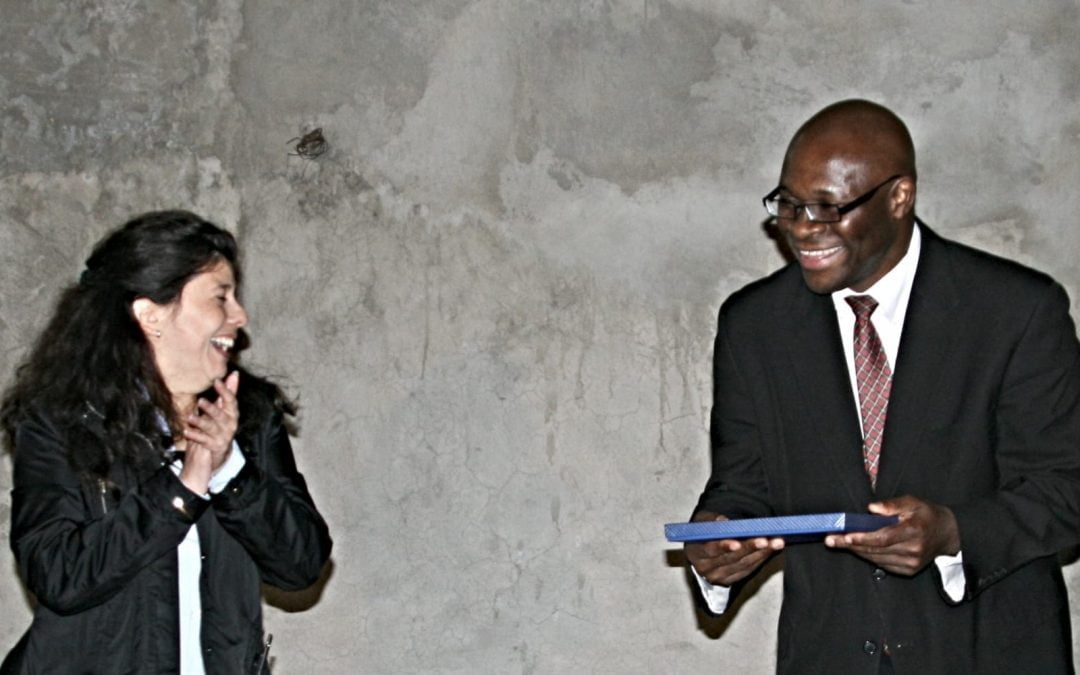As head of communications for the Baptist World Alliance (BWA) for 12 years, I traveled to some 30 countries and wrote much about religion, faith and belief in dozens more.
I became keenly aware of issues faced by persecuted and marginalized groups, including people of faith, and how the law, especially constitutional law, affected them.
Some actions violated international norms and practices as well as resolutions and agreements of international bodies, such as the United Nations.
In many instances, offending actors, some in government and other high-level positions, violated the laws and constitutions of their own countries.
While U.N. and other documents were readily available, it was difficult to access the constitutional provisions and laws on religion of most countries.
Constitutions, or basic laws, are a country’s founding documents and the basis for all, or most other laws of governance, rights, privileges, duties and redress.
No law can or should violate the constitution. If it does, the law is changed or scrapped, or the constitution is changed to reflect the new paradigm.
In my role at the BWA, many constitutions were inaccessible due to language. While one can find English translations of most constitutions, they were scattered.
I secretly wished for a volume to consult to determine what each country’s constitution says about religion, belief, faith and conscience.
Thinking others may have this problem, I decided to do something about it.
It is hoped that “Constitutionally Religious: What the Constitutions of 180 Countries Say About Religion and Belief” will help those who want something to quickly consult on constitutions of the various countries on religion and belief.
It contains most of the important provisions, clauses and texts within national constitutions on religion, belief and faith.
I suspect this book will be useful to international actors, such as advocates for religious freedom. Global religious organizations – Christian, Buddhist, Muslim, Jewish and others – will find it useful.
It is good to know what a country’s position on religion and belief is if one has or seeks a presence there or to act there.
Professors, students and researchers now have a ready volume in hand to consult as a reference.
Most constitutions conform to certain styles. This makes the reading easier. It is also possible to determine small but significant deviations that hold serious implications.
Western nations and others, for instance, seem to draw from each other, or from a common source or tradition. The wordings are close if not the same.
It appears many younger countries, those that gained independence post-World War II, took their cues from leading U.N. documents, such as the Universal Declaration of Human Rights (UDHR), and various U.N. resolutions and treaties.
These countries tend to grant full rights and freedoms to religions, believers and adherents.
Other countries have very different understandings of how religion is governed. Some, like Cyprus and Iran, have very detailed provisions.
Others, such as Australia, Guatemala, Mali, Monaco and Trinidad and Tobago, have just a few sentences.
For some countries, Iran, Luxembourg, Maldives and so on, religion is at the heart of national life. For others, many in Western Europe, it lies at the periphery.
In most constitutions, religious rights enjoy the same protections associated with race, ethnicity, gender and so on.
Most allow equal protection of all faiths, provided they do not violate public order, health or morals or infringe upon individual rights.
There are outliers, where religion is given heightened protection even over race and ethnicity, and where one faith tradition enjoys greater protection over others.
Some go the other way, where persons holding religious office are forbidden from vying for political office or to be eligible for judicial positions.
Vagueness prevails in many constitutions. Defenders of religious liberty, and those who seek to restrict such liberties, can each find support in vague clauses. This makes certain constitutions problematic.
Many countries live way below the ideals of their constitution. They draw on ideals expressed in and through the U.N. and other multilateral organizations, but have not, in their governance and practices, given substance to what the constitution says.
Others, such as Myanmar (Burma), employ obfuscation, appearing tolerant but closer readings of the text reveal deep intolerance.
Still others, such as Yemen, are ironic, claiming to enshrine tolerance while the very wording of the article or clause achieves the opposite.
“In a world where 70 percent of the world’s population live in countries with high restrictions on religion, there has never been a more important time to defend religious freedom for all,” according to Anthony Peck, general secretary for the European Baptist Federation. “To do this effectively, it is often necessary to engage with complex issues of constitution and law.”
It is hoped “Constitutionally Religious” aids in this process.
Editor’s note: Henry’s “Constitutionally Religious: What the Constitutions of 180 Countries Say about Religion and Belief” is available here.
Eron Henry is a journalist, editor, author and minister. He has published a novel, “Reverend Mother,” and a compilation of constitutional provisions related to religious freedom, “Constitutionally Religious.” His blog, Ole Time Sumting, was recognized with an Award of Merit by the Religion Communicators Council in 2018.


